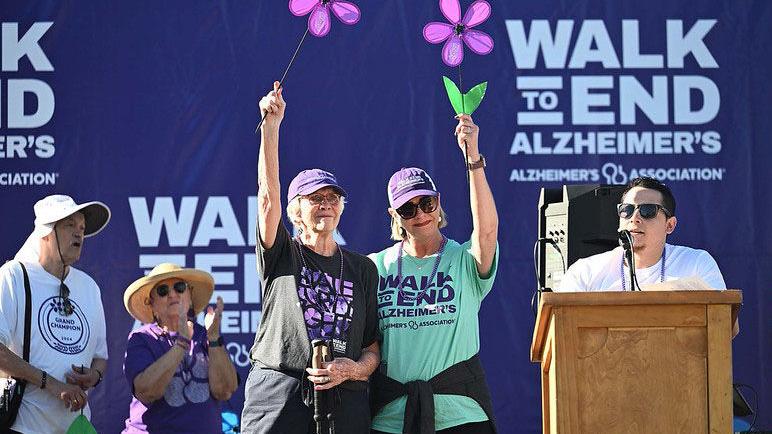As the cooler fall weather settles in across the Sonoran Desert, Tucson is gearing up for a series of impactful fundraising walks. On Saturday, October 25, 2025, two significant events will take place: the Walk to End Alzheimer’s at Gene C. Reid Park and the Tucson Walk ALS at Hi Corbett Field. These events aim to mobilize community support for local nonprofits dedicated to crucial health issues.
The Walk to End Alzheimer’s, organized by the Alzheimer’s Association, anticipates around 2,000 participants. According to Gwen Mikinski, Southern Arizona Walk Manager, the community has shown remarkable enthusiasm and support. “We are super excited about the walk. Businesses have really stepped in with sponsorships, and I can’t tell you how much the community has gotten behind us,” she said.
With over 150,000 individuals aged 65 and older living with Alzheimer’s disease in Arizona, the need for support services is evident. The event has already raised more than $277,000 towards its $360,000 goal. Funds raised will support essential services, including a free 24/7 Helpline (800-272-3900) staffed by clinicians and specialists, as well as online and in-person support groups.
The Alzheimer’s Association also provides advocacy at local, state, and federal levels and funds extensive research initiatives, contributing $430 million to over 1,150 active projects. Mikinski highlighted the importance of local research efforts, stating, “Scientific research at the Banner Alzheimer’s Institute and the University of Arizona Center for Neuroscience is responsible for the roots of clinical trials that go to the FDA for approval.”
Volunteers play a critical role in the success of these fundraising efforts. Mikinski emphasized their importance, noting, “Volunteers are at the heart of what we do. For individuals who are retired or have experienced Alzheimer’s in their family, we can engage them in leading support groups or helping with the walk.”
Young people are also stepping up, as seen in the efforts of the Sigma Kappa Sorority, which has selected the Alzheimer’s Association as its nationwide charity. The University of Arizona chapter has raised $55,000 this year, ranking fifth nationally among Sigma Kappa fundraisers. “There is a huge effort on the part of the Alzheimer’s Association to remove the stigma that this is an old person’s disease,” Mikinski added, noting that early onset cases are increasingly common.
Meanwhile, the Tucson Walk ALS will occur at Hi Corbett Field, also on October 25, starting with check-in at 08:00 and the walk commencing at 09:00. According to Angie Tigges, Director of Development for ALS Arizona, the event promotes community and support for those affected by Amyotrophic Lateral Sclerosis (ALS). “It is really an inspirational, feel-good type of day,” Tigges stated, describing the walk as more of a celebration than a fitness event.
Over 600 patients diagnosed with ALS live in Arizona, with approximately 70 residing in Tucson. Proceeds from the event will support free programs and services provided by ALS Arizona, which include assistance with diagnosis, funding for care and respite, and a Loan Closet for medical equipment. Tigges noted that the cost of essential equipment can exceed $70,000, placing a significant financial burden on patients and their families.
Both events highlight the community’s commitment to addressing critical health challenges while fostering a spirit of collaboration and support. Those interested in contributing can find additional information and registration details for the events online.
For the Walk to End Alzheimer’s, registration begins at 08:00 with the walk starting at 09:30. Participants who raise a minimum of $100 will receive an official event t-shirt. Volunteers are also needed for various tasks. More details can be found at http://tucne.ws/1t3x.
For the Tucson Walk ALS, check-in is at 08:00 and the event features a variety of activities, including breakfast and a Kids Zone. Participants can register at http://tucne.ws/1t3y.
These fundraising walks not only aim to raise money but also to build awareness and foster community engagement, proving that collective efforts can make a significant impact in the fight against Alzheimer’s and ALS.







